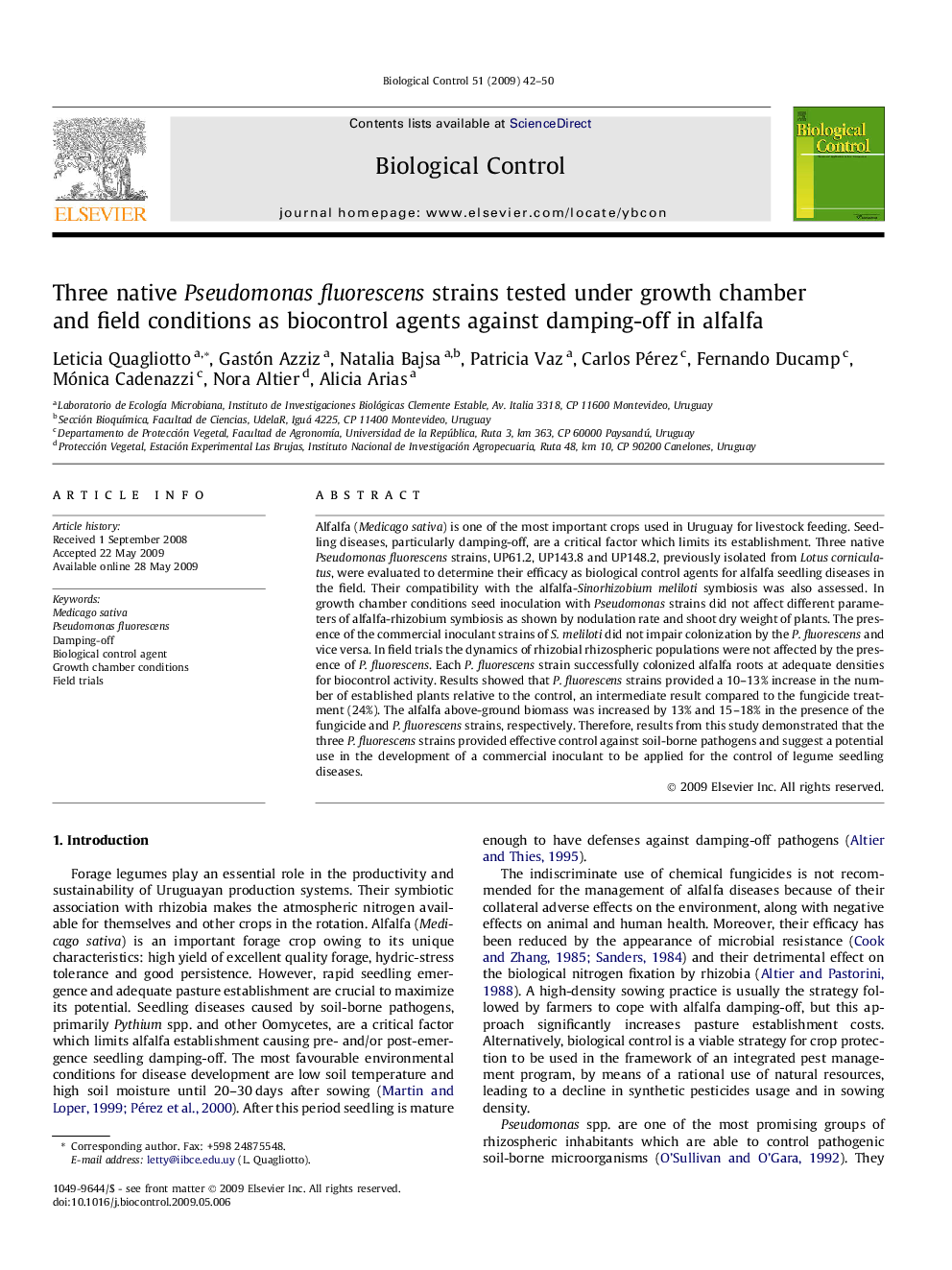| Article ID | Journal | Published Year | Pages | File Type |
|---|---|---|---|---|
| 4504509 | Biological Control | 2009 | 9 Pages |
Abstract
Alfalfa (Medicago sativa) is one of the most important crops used in Uruguay for livestock feeding. Seedling diseases, particularly damping-off, are a critical factor which limits its establishment. Three native Pseudomonas fluorescens strains, UP61.2, UP143.8 and UP148.2, previously isolated from Lotus corniculatus, were evaluated to determine their efficacy as biological control agents for alfalfa seedling diseases in the field. Their compatibility with the alfalfa-Sinorhizobium meliloti symbiosis was also assessed. In growth chamber conditions seed inoculation with Pseudomonas strains did not affect different parameters of alfalfa-rhizobium symbiosis as shown by nodulation rate and shoot dry weight of plants. The presence of the commercial inoculant strains of S. meliloti did not impair colonization by the P. fluorescens and vice versa. In field trials the dynamics of rhizobial rhizospheric populations were not affected by the presence of P. fluorescens. Each P. fluorescens strain successfully colonized alfalfa roots at adequate densities for biocontrol activity. Results showed that P. fluorescens strains provided a 10-13% increase in the number of established plants relative to the control, an intermediate result compared to the fungicide treatment (24%). The alfalfa above-ground biomass was increased by 13% and 15-18% in the presence of the fungicide and P. fluorescens strains, respectively. Therefore, results from this study demonstrated that the three P. fluorescens strains provided effective control against soil-borne pathogens and suggest a potential use in the development of a commercial inoculant to be applied for the control of legume seedling diseases.
Related Topics
Life Sciences
Agricultural and Biological Sciences
Agronomy and Crop Science
Authors
Leticia Quagliotto, Gastón Azziz, Natalia Bajsa, Patricia Vaz, Carlos Pérez, Fernando Ducamp, Mónica Cadenazzi, Nora Altier, Alicia Arias,
